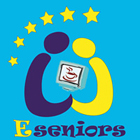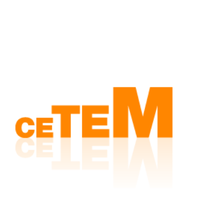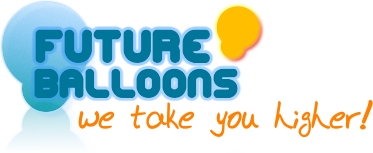bit management Beratung GmbH (Austria) is part of bit group, which is the largest private training provider in Austria. Since 1996 , the company has been active in the consulting and training sector and succesfully managed and completed many international projects. The main focus of business is on the following areas: national and international projects, consulting and training in the field of environment and sustainability, training and consulting services in the field of entrepreneurship, result-oriented, tailormade trainings in the fields of personality development, leadership, team development, HR-management, sales, project management, logistics and an academy for nursing and health.
E-Seniors is a non-profit non-governmental organization, founded in 2005 by Monique EPSTEIN, the general manager of the association. E-Seniors aims at fighting e-exclusion by providing access to and training in ICT to seniors and/or disabled people.
Its main objectives are to bridge the digital gap between generations; to foster seniors’ social participation; to propose activities encouraging seniors to spend actively their free time. Since its creation, E-Seniors has provided ICT courses for seniors in various public locations and the association is constantly opening new locations all over the Parisian region in order to provide a “proximity” service that takes into account the rhythm, interests and needs of its audience.
The organization also aims at raising awareness among seniors about the importance of ICT solutions for their social inclusion and for cognitive training.
Johanniter-Unfall-Hilfe e.V. has been active in various charitable and social areas for more than 60 years. Since its foundation on 7 April 1952, Johanniter-Unfall-Hilfe has developed into one of the largest aid organisations in Europe with more than 20,000 employees, almost 36,000 volunteers, and about 1.3 million supporting members. In the tradition of the Protestant Order of St John, its tasks today include rescue and medical services, disaster control and first aid training. In addition, there are social services such as working with children and adolescents and caring for elderly and sick people. Internationally, Johanniter is involved in humanitarian aid, for example in the event of famine and natural disasters. In addition to facilities such as day-care centres, nursing homes, hospitals and rescue stations, the Johanniter Academy is also part of Johanniter-Unfall-Hilfe e.V. as its vocational training institution.
CETEM is a business association and training centre located in the southeast of Spain, in the town of Yecla. It was created due to an initiative by private companies from the furniture and habitat sectors of the Region of Murcia and established in 1995 with the initial support of the regional government, the Spanish Ministry of Industry and the European Union. CETEM is formed by 40 professionals with different backgrounds: engineering, technology transfer, business administration, chemistry, psychology, teaching, design, etc. The scope of experience actively contributes towards the socio-economic development of companies by providing support and promoting processes of technology, innovation and development, such as strategies of competitiveness in the business environment and training programmes. For that purpose, their main departments are Industrial Processes Technology, Product Engineering, Materials Science, Electronics and Home Automation, Robotics, Training and Technological Surveillance.
The company was founded in 2010 and during the last few years has grown to 10 employees. It is located in the small coastal town of Figueira da Foz (Central Portugal). Their mission is “to try to help the transition from the information society to the understanding society”. They believe that the amount of information stored and available (both on a personal and organisational level) is only needed up to a critical level. Thereafter, new conditions for evolution are required: creativity, criticality, filtering, strategy and responsibility. These conditions can be strengthened by application and multiplied by education. To achieve this, they combine 2 main areas of activity: – Technological area – they produce software solutions that support the pedagogical principles and provide tools to clients to manage their own offer.
– Pedagogical Area – the team develops concepts and methods for a more motivated and immersive education. They involve client organisations and their targets (students, adult learners) in experiences that increase their competencies to meet the learning challenges raised by the Knowledge and Information Society.




